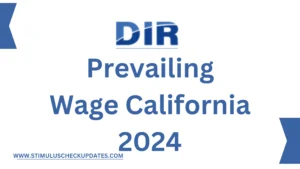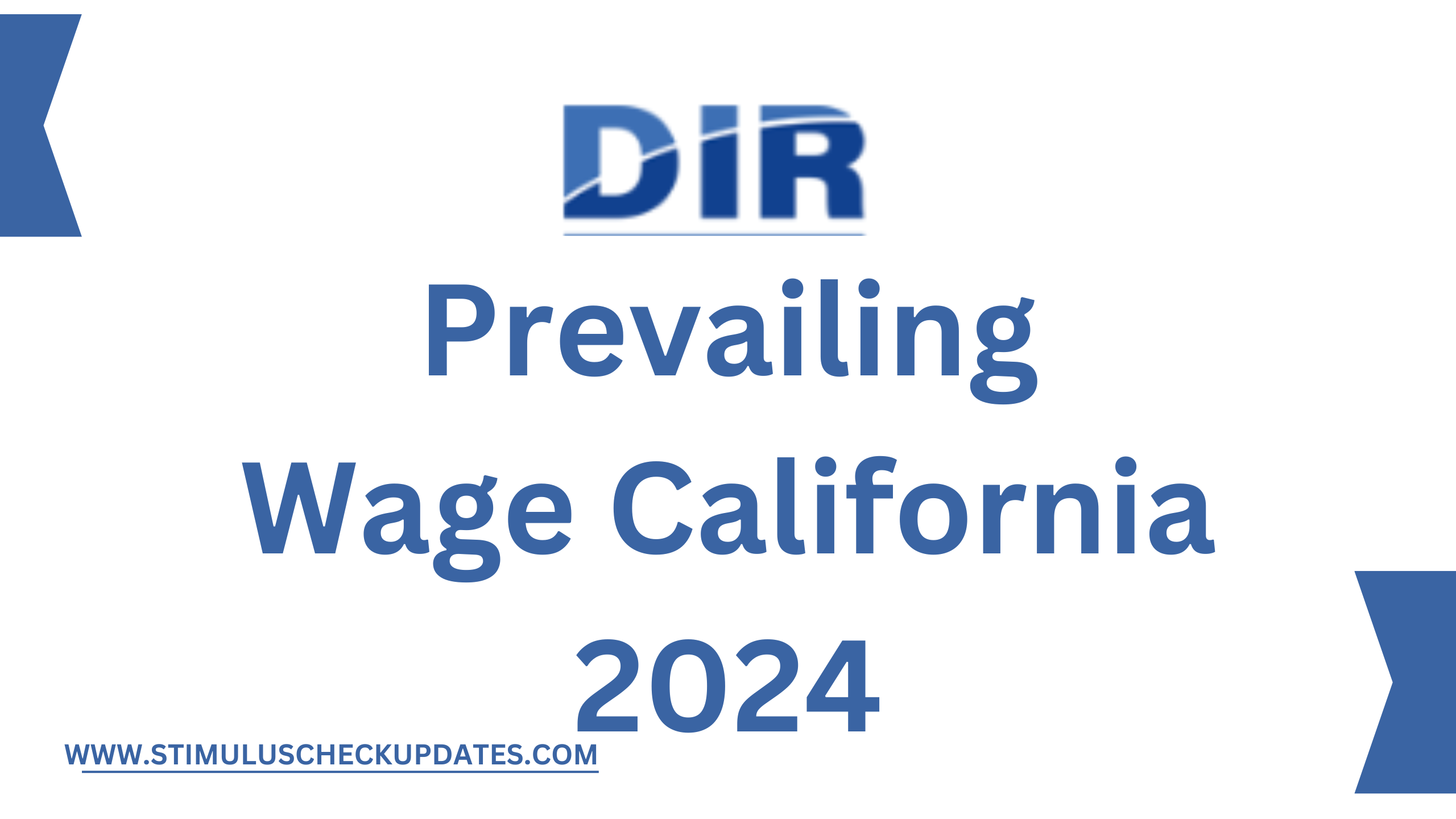Welcome to a story about jobs and pay in California in 2024! We’re focusing on something important called the “prevailing wage.” It’s like the heartbeat of how much money people get for their work. This year, things are changing, and we want to explore why and what it means for workers and jobs. Imagine it as a journey where we learn about new rules that make sure people get fair pay. So, join us as we discover what’s happening with the prevailing wage in California – it’s like turning the pages of a book to understand how things are getting better for workers!
California Prevailing Wage 2024-Overview
| Key | Details |
|---|---|
| Effective Date | January 1st, 2024 |
| Wage Increase from 2023 | 3-5% increase across all occupations |
| Key Occupations and Wages | Electricians – 62.10 in 2023) |
| Carpenters – 49.50 in 2023) | |
| Plumbers – 57.50 in 2023) | |
| Laborers – 43.80 in 2023) | |
| Geographic Wage Differences | Wages in the San Francisco Bay Area are 5-10% higher than rest of the state |
| Wage Posting Requirements | Contractors must post wage rates at job sites visible to all workers |
| Compliance and Enforcement | Increased penalties for wage theft and failure to classify workers properly |
| Apprenticeship Requirements | Contractors must have 1 apprentice for every 5 journeymen on large public works projects |
What are the Prevailing Wage Requirements in California?
California’s prevailing wage laws, known as the California Labor Code, apply to public works projects that exceed $1,000 and are funded in whole or in part by public funds like bonds, taxes, government grants, or loans.
Covered projects include construction, alteration, demolition, installation, repair, or maintenance work performed under contract and paid for in whole or in part out of public funds. This includes work for the state, state agencies, all political subdivisions of the state, any public or quasi-public corporations, and non-profit hospitals.
Contractors and subcontractors on such projects must pay their workers the general prevailing per diem wages in the locality in which public work is performed for each craft, classification, or type of worker needed to complete the project. These prevailing wage rates are determined by the California Department of Industrial Relations (DIR).
In addition to wages, prevailing wages include employer payments for health and welfare, pension, vacation/holiday, and similar purposes for each craft, classification, or type of worker. Apprentice rates also apply for registered apprentices working on covered projects.
Certified payroll records must be submitted to the public entity that commissioned the work every week. The payroll records must include each worker’s name, address, social security number, craft, hourly pay rate, daily/weekly hours worked, itemized deductions, fringe benefits, and apprenticeship training contributions.
Contractors and subcontractors must keep accurate payroll records for three years after completion of the project. These records are open to inspection by DIR for compliance monitoring purposes.
Workers can file complaints with DIR against contractors for prevailing wage violations like unpaid wages, improper classification, or apprenticeship violations. DIR investigates all such complaints. Contractors found in violation may face penalties and fines.
California prevailing wage exemptions
Projects less than $1,000 in total costs are exempt from prevailing wage requirements. Projects using only volunteer labor (without any paid workers) are exempt.
Maintenance work is exempt unless it is a part of a construction project. Routine, scheduled, periodic, or recurring work to maintain the original level of or original condition of the construction is considered maintenance.
Installation or repair work under $25,000 in total costs for the same project is also exempt from prevailing wage requirements.
Projects using only inmate labor from city, county, or state penal/correctional institutions are exempt.
Projects that qualify for one of the statutory exemptions provided under Section 1773 of the Labor Code are also exempt from prevailing wage requirements.
California Prevailing Wage Laws 2024
The California minimum wage increased to $15 per hour for employers with 26 employees or more, and $14 per hour for employers with 25 employees or less starting January 1, 2023.
The minimum wage will further increase to $15.50 per hour for all employers starting January 1, 2024.
DIR updated the 2024 general prevailing wage rates in November 2023 based on the Bureau of Labor Statistics data. The wage rates vary based on the type of project and location within California.
The base hourly rates for journeyman workers range from $46 to $81 for various crafts like carpenters, electricians, plumbers, roofers, etc. depending on the county.
Employer payments for health and welfare, pensions, vacation/holiday, and training contributions further increase the total prevailing wage rates.
DIR also updated the apprentice wage rates for 2024 based on prescribed formulas applying to apprentices at different levels or years of an apprenticeship program.
Contractors must pay these total prevailing wage rates (base hourly wage + employer payments) to workers on all public works projects that exceed $1,000 in costs starting January 1, 2024.

How to determine California’s prevailing wage?
Contractors should first check if their public project is subject to prevailing wage requirements based on the funding source and total project costs.
They need to classify each craft, worker type, and apprentice level required for the project based on the work scope.
The county where the project is located determines which set of prevailing wage rates from DIR’s database applies.
Contractors can search DIR’s database online or contact the local DIR district office to obtain the 2024 prevailing wage determinations for each craft and classification.
The determinations specify the base hourly wage as well as all employer payments that go towards calculating the total prevailing hourly rates.
Contractors are required to pay their workers the total prevailing hourly wage rates as per DIR’s determinations for that project location and duration.
They must maintain certified payroll records demonstrating compliance and make these available for DIR audits if requested.
[sp_easyaccordion id=”2025″]

